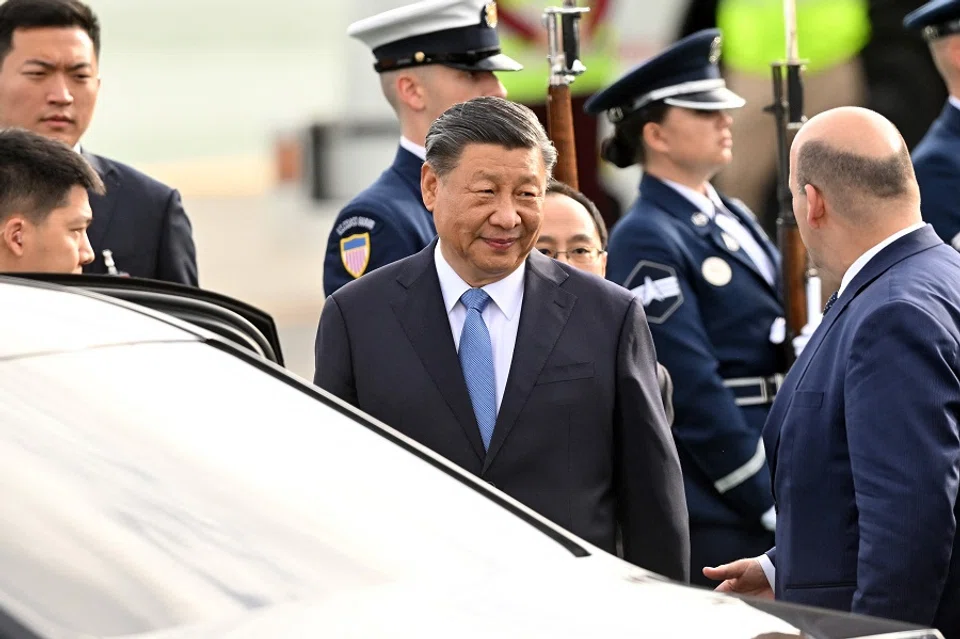Chinese academic: Can California sunshine warm Sino-US relations?
As the leaders of two largest world economies meet in San Francisco this week, Fan Hongda, a visiting scholar at the University of California, Berkeley, explains why there are good reasons for the US and China to cooperate, both in the interests of international relations and bilateral ties.

Over the past few months, there has been a lot of conjecture about Chinese President Xi Jinping's attendance at the Asia-Pacific Economic Cooperation (APEC) summit in San Francisco and his meeting with US President Joe Biden.
China's foreign ministry spokesperson finally confirmed on 10 November that Xi would be in San Francisco from 14-17 November for a China-US summit meeting and the APEC meeting at the invitation of Biden.
Of course, this is good news, not just for these two countries, but for the world. This troubled world badly needs a face-to-face meeting between the heads of the two largest economies.
In Washington's eyes, the People's Republic of China has never been a trustworthy friend. But in international relations, those who are not friends are not necessarily enemies. In the past, China and the US have had sweeter moments of good interaction, such as in the 1980s.
However, the deterioration of Sino-US relations in recent years is obvious. When did this start? I would say during the presidency of Barack Obama.
Just like how it suppressed Japan, the former world's second-largest economy, Washington has also adopted a containment strategy against China.
Keeping the number two in check
When the US became embroiled in conflicts in the Middle East after the September 11 terrorist attacks, China's economy ushered in a moment of rapid development. In 2010, China surpassed Japan to become the world's second largest economy, which remains the case today. Economic development has also enabled China to continue to make progress in other aspects, including the military.

Since then, as the world's largest economy, the US is once again confronting the age-old challenge of how to deal with the world's second largest economy. Just like how it suppressed Japan, the former world's second-largest economy, Washington has also adopted a containment strategy against China.
On the other hand, as the country's comprehensive strength increased and a new generation of leaders came to power, China became more focused on international affairs and more adamant about continuing on its independent development path.
The truth is that both the US and China are victims of deteriorating bilateral relations, as are the entire world.
In this way, US-China relations began to deteriorate during the Obama administration.
During the Trump administration, the US significantly increased its efforts to contain China, and China subsequently launched more forceful counterattacks. Relations between the two countries deteriorated greatly.
The Biden administration has continued its predecessor's China policy, and China has reacted in a tit-for-tat manner. The truth is that both the US and China are victims of deteriorating bilateral relations, as are the entire world.
Perceptions of each other have to change
What core disagreements exist between the US and China? It has to do, I believe, with how the two most powerful countries see each other, and how they approach the changing international order.

In the past two hundred years, the relationship between the two most powerful countries in the world has been trouble-prone. This was true for British-French relations and British-German relations in the 19th century, the US-British, US-Soviet, and US-Japanese relations in the 20th century, as well as the current US-China relations. In this sense, there is considerable truth to John Joseph Mearsheimer's theory of offensive realism.
But just as Mearsheimer's views have been widely criticised, the relationships between world powers need not always be tragic. The way China and the US see each other has to change - the two countries are not playing a zero-sum game in the international arena and should find a way to coexist as soon as possible.
The old international order is increasingly unable to cope with global challenges. Instead of attempting to undermine one another, China and the US need to cooperate to deal with the changing global environment and shoulder the responsibility of leading the world forward, especially during difficult times.
There is an obvious consensus between the US and China on the Gaza crisis.
Working together for the good of international and bilateral relations
Many international issues require cooperation between China and the US, such as the Gaza-Israel war, which is facing the risk of escalation. After Gaza launched a violent attack on Israel on 7 October and Israel declared war on Hamas, the situation in the Middle East has become increasingly tense. Once the war escalates into a regional war, not only the Middle East but the entire world will suffer as a result.
As the death toll in Gaza, including civilians, continues to increase and the humanitarian crisis exacerbates, Israel is facing strong international criticism. Washington is also experiencing increasing domestic and international pressure due to the US's special bilateral relationship with Israel. This Gaza-Israel war has put the Biden administration in an awkward position.

The US does not want the current war to escalate into a regional war, whether for reasons of obligation as a global power or for strategic reasons. On the other hand, since the Gaza-Israel war broke out, China has been calling for an early ceasefire and has worked actively to de-escalate the war. There is an obvious consensus between the US and China on the Gaza crisis.
Of course, there are still some differences. China's emphasis is on an immediate ceasefire, while the US asks that the war not escalate. But clearly, Washington policymakers do not want the US to be dragged into the war in the Middle East by Israel. The differences between the US and Israel on how to deal with Gaza are increasingly obvious.
... personnel exchanges between the two countries, including scholars, would also benefit from an improvement in bilateral relations.
The Gaza-Israel war has shown that to solve significant issues, the US and China must work together. To realise their huge potential for cooperation, the two countries need to engage and communicate to facilitate the coordination of the cooperation process. Effective communication is necessary to turn possibilities into realities. Even if the two countries cannot be friends, they do not necessarily have to be enemies.

A lowering of tensions in bilateral ties would also benefit the two greatest economies in the world. Even in 2022, when the two countries were at odds, US-China trade continued to rise and was at a very high level. Not only that, personnel exchanges between the two countries, including scholars, would also benefit from an improvement in bilateral relations.
As a visiting scholar from China who has just arrived at the University of California, Berkeley, I have already enjoyed the comfortable sunshine here. I hope and believe California sunshine can also warm Sino-US relations.



![[Photos] Fact versus fiction: The portrayal of WWII anti-Japanese martyrs in Taiwan](https://cassette.sphdigital.com.sg/image/thinkchina/3494f8bd481870f7c65b881fd21a3fd733f573f23232376e39c532a2c7593cbc)

